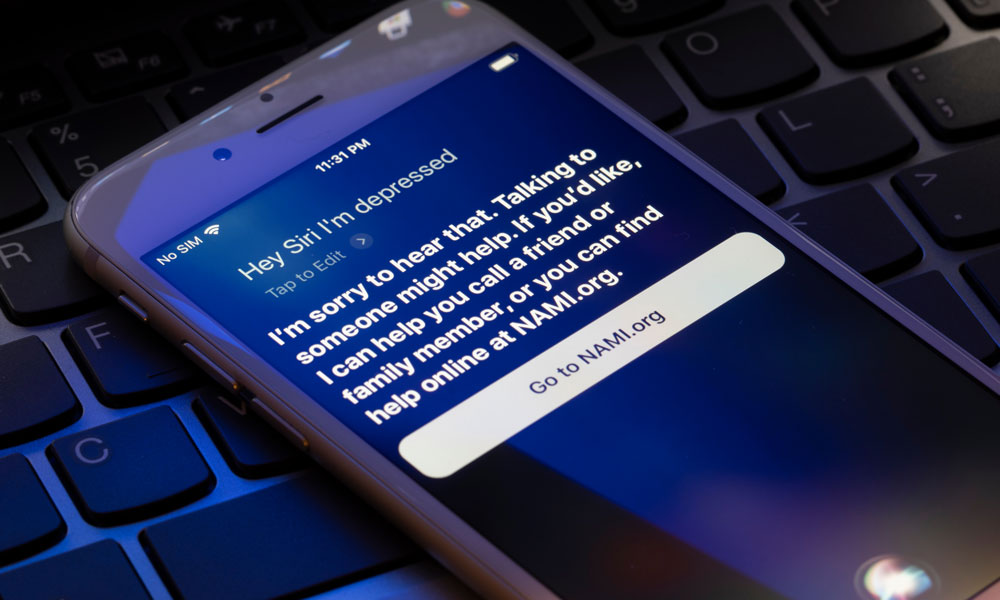Your iPhone Might Someday Sense If You’re Depressed or Facing Cognitive Decline
 Credit: Tada Images / Shutterstock
Credit: Tada Images / Shutterstock
Toggle Dark Mode
Although Apple has undertaken numerous medical research studies in recent years, most of these have been focused on using the Apple Watch since it’s purpose-designed to monitor a wearer’s health. Now, however, an iPhone-centric study is looking at ways the iPhone could be used to identify potential mental health concerns.
According to The Wall Street Journal (Apple News+), the study aims to find out if sensor data collected by the iPhone can help diagnose depression and cognitive decline.
While Apple hasn’t gone public with this particular study, it appears to be an expansion of a study that began earlier this year, since it involves some of the same players — specifically Biogen and Apple. The University of California, Los Angeles (UCLA) has also been added to the mix, however.
That earlier study also seemed to be focused more specifically on Alzheimer’s, dementia, and other cognitive disorders, and was leveraging both the Apple Watch and the iPhone to look for digital biomarkers rather than merely the changes in behavioural patterns that had been explored in an earlier 2019 study.
According to the WSJ, however, this particular study appears to be expanding the scope to study not only clinical cognitive impairments, but also how everyday problems with stress, anxiety, and depression and be detected and measured. The latter is the focus of UCLA’s part in the study, which has been codenamed “Seabreeze” in internal Apple documents.
The Biogen project, which is likely continuing along the same lines as before, has been dubbed “Pi” according to people who spoke with the WSJ. Representatives for Apple, Biogen, and UCLA have declined to comment, however.
Perhaps more significantly, this shows that Apple’s health unit is now setting its sights on how sensors in the iPhone can be used to collect health data, and Apple’s executives are said to be very excited about the prospect. According to the article, Apple’s Chief Operating Officer, Jeff Williams, who oversees the company’s health ambitions, “has spoken enthusiastically to employees about the company’s potential to address surging rates of depression and anxiety as well as other brain disorders.”
Improving Mental Health
Some of this falls in line with other studies that would simply look for things like typing more slowly or less regularly, but documents also reveal that Apple is looking at ways the TrueDepth camera system could analyze facial expressions, as well as looking at ambient light and audio.
For example, UCLA researchers will use data from the iPhone’s camera, keyboard, and microphones and combine that with data captured from the Apple Watch on movement, vital signs, and sleep.
Researchers will look at participants’ facial expressions, how they speak, the pace and frequency of their walks, sleep patterns, and heart and respiration rates, as well as typing speed, and frequency of typos on the iPhone.
Participants in the study will be asked to complete questionnaires to describe how they feel so that researchers can try to determine if there’s a correlation between this data and levels of stress, anxiety, or depression in the participants.
UCLA started the pilot phase of the project last fall, tracking this Apple Watch and iPhone data from 150 people, and the main phase will now expand that to 3,000 participants.
According to the documents and people familiar with the work, the goal of the UCLA study is to find a way to turn any signals of relevant mental-health conditions into an app or iOS Health feature that could notify users that they could be at risk and prompt them to seek proper care.
Meanwhile, the Biogen study continues the collaboration that began in January, which is looking to detect the kind of mild cognitive impairment that could signal the early onset of Alzheimer’s. Additional details uncovered by the WSJ reveal that the two-year study will track approximately 20,000 participants, half of whom are already considered at high risk of cognitive impairment. The study will also use the same kind of data as the UCLA study, factoring in everything from participants’ behaviours to their biomarkers.
The goal of Biogen, in this case, would be to develop an iPhone Health feature that could notify people who are potentially at risk of developing more serious cognitive impairments such as Alzheimer’s and prompting them to seek care at a much earlier stage. While treatments for early-stage Alzheimer’s are still evolving, Biogen received FDA approval for its Alzheimer’s drug Aduhelm, although it costs upwards of $56,000 per year.
While more than five million people in the U.S. live with some form of dementia, it’s a condition that’s very hard to identify or diagnose until it becomes serious, so the ability of the Apple Watch and iPhone to detect these conditions early on could potentially be a game-changer for mental health care.






